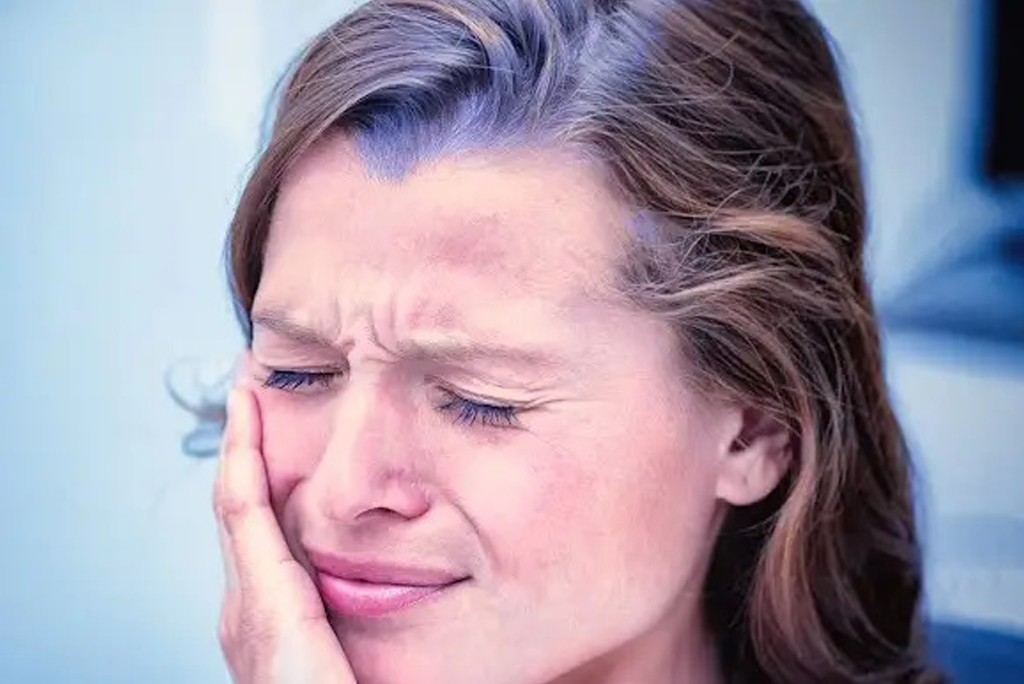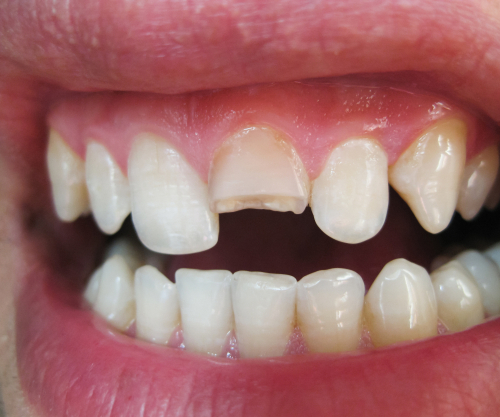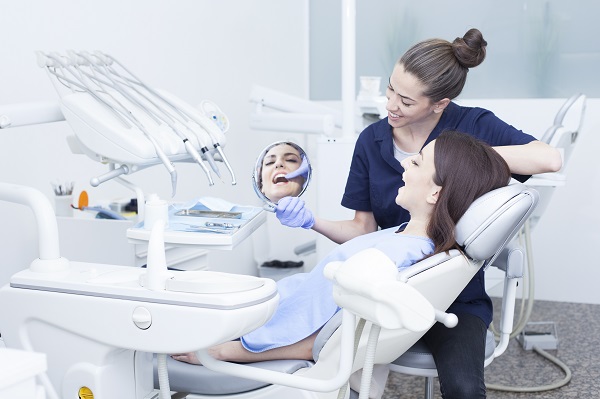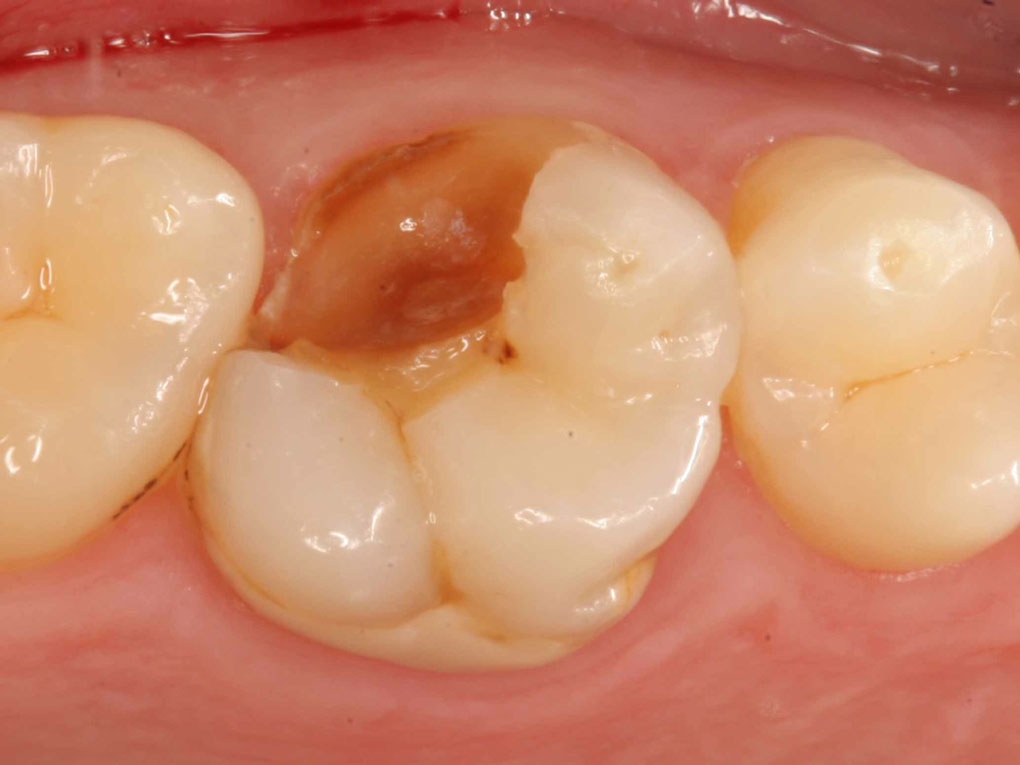
Soothe your discomfort: Get A Painless RCT
What is Dental Pain?
Dental pain is a broad term describing sensations of pain or discomfort with origins in the oral cavity. Most commonly, dental pain would describe a toothache, but there are also sources of pain in the mouth that do not specifically involve the teeth. Dental pain is common unless the best dentist in Delhi has already ruled out an infection as the source of your pain, you can assume your toothache is the result of a dental disease.
What Does Dental Pain Feel Like?
The origin of dental pain can influence how it feels. For example, an infection that causes inflammation inside the tooth chamber may cause severe, sharp shooting pain. While an infection or inflammation around the roots of a tooth typically causes a dull aching type of pain. Sensitivity to hot or cold temperatures typically accompanies pain originating inside the tooth viz… in the nerve of the tooth which gets aggravated on chewing.
Sometimes, a dental infection that causes swelling does not lead to severe pain because there is no sudden increase in pressure. On the other hand, dental infections confined to the internal tooth chamber cause severe pain. This is because, rather than swelling outward, the increase in fluid due to inflammation simply builds up inside the tooth.
Rarely, some people experience dental pain from what is called “referred pain.” This is pain coming from nerves outside of the tooth structures that our brain interprets as tooth pain. This could be from the pinching of a nerve in the jaw joints or upper neck, infections in our sinuses or sores in our mouth unrelated to the tooth structures. These atypical types of dental pain may also include burning or tingling sensations.
What is a Root Canal?
On the outside, our teeth have an enamel layer, then the second layer of dentin and a soft inside core that goes deep into the root of our jawbone. This core contains the dental pulp (which consists of connective tissue, blood vessels and nerves).
When the decay reaches the soft-core, the pulp becomes inflamed or infected, at times the pulp can also die. This needs to be fixed and a root canal is then needed to save the tooth and clean the decay.
A root canal is a treatment to remove bacteria from the infected root canal of the tooth and prevent it from further infection. Once the infected pulp is removed, the inside of the tooth is carefully disinfected, cleaned and then a filling is placed to seal the space. This treatment saves the natural tooth.
So how would you know if you need a root canal? How would you know if the pulp has been infected? Let’s learn more about the symptoms that may indicate you need a root canal.
Symptoms that show you need a root canal treatment
The assured way to know if you need a root canal treatment is by visiting the best dentists in Delhi. Keep a watch on these warning signs, because the earlier you detect, the earlier your tooth can be treated and saved.
Following are the symptoms:
- Persistent tooth pain
- Sensitivity to hot and cold food
- Tooth discolouration
- Swollen gums
- Pain when you touch the tooth
- A chipped or cracked tooth
- Tooth feels loose
- Swelling on the gums
- Severe pain while chewing or biting
The best dentist in Delhi will examine the tooth and take X-rays to confirm the diagnosis.
How is a root canal performed?
The best root canal specialist in Delhi or an ‘endodontist’ will perform a root canal treatment. Endodontists are highly skilled dental specialists who focus exclusively on treatments related to the dental pulp.
- An X-ray will be taken to determine if there are any signs of infection in the surrounding bone, it will also focus on checking the shape of the root canals.
- Local anaesthesia will be administered to numb the area near the tooth.
- You’ll remain awake during the procedure, but the anaesthesia will keep you from feeling any pain.
- Once the tooth is numb, a small opening is created at the top of the tooth ( also called the Crown) using a drill.
- Next, using special dental tools called ‘Files’, the dentist near you or the endodontist will remove the damaged pulp and the bacteria and clean the area. The sides of the root canal are also scraped and scrubbed clean. As the procedure is being done, sodium hypochlorite or water will be sprayed in the area to flush away the debris.
- After the area is well cleaned and shaped, the endodontist or the dentist will fill the root canals with a biocompatible material. This material is called gutta-percha. Next, to ensure flawless sealing of the root canals, gutta-percha is placed with a block of an adhesive cement. Next, a filling is added at the initial opening created.
- At last, the best dentist in Delhi or the endodontist will discuss any additional restoration work that your tooth might need. For example, placing a crown or other restoration to protect the tooth and prevent it from breaking.
Is Root Canal a painful treatment?
Mild pain after a root canal treatment is normal. A root canal involves deep cleaning inside the canals which can irritate surrounding nerves and gums until the treatment completely heals. However, this pain does not last forever.
Since the pain experienced after a root canal treatment is usually mild, you’ll likely be prescribed over-the-counter pain medications for relief. Any pain that lasts longer than it should and is persistent, should be brought to the attention of your dentist.
What happens after a root canal?
Following the completion of a root canal, for the first few days, the tooth may feel sensitive due to surrounding tissue inflammation. But that should only last for a few hours or maybe a couple of days or two.
The longevity of the success of the root canal treatment depends on how the patient looks after and maintains the treated teeth.
Some of the must do’s after a root canal treatment:
- Try to avoid chewing with the tooth for a brief time after the treatment.
- Brush, floss and use mouthwash regularly.
- Visit the best dentist in Delhi or wherever you are at scheduled intervals
- To conclude, although the treatment does cause minor pain and fear, it will bring you a lifetime of relief from all the pain. If you have been experiencing any of the symptoms mentioned above, we advise you to visit the best dental clinic in Delhi as soon as possible and get a diagnosis done.
At ‘Smile Delhi,’ we provide multiple specialities of dental care from basic diagnosis, routine dental procedures to complex reconstructive surgeries. If you are looking then book an appointment with us.
To book an appointment with us at, ‘Smile Delhi – The Dental Clinic’– call us on +91-9811106871 or WhatsApp Dr. Suprriya B Bhatia on +91-9811106377. We pride ourselves to have the best cosmetic dentist in South Delhi. You can also mail us on [email protected].
“We Care To Make You Smile”
Posted by: Dr Hema


































































